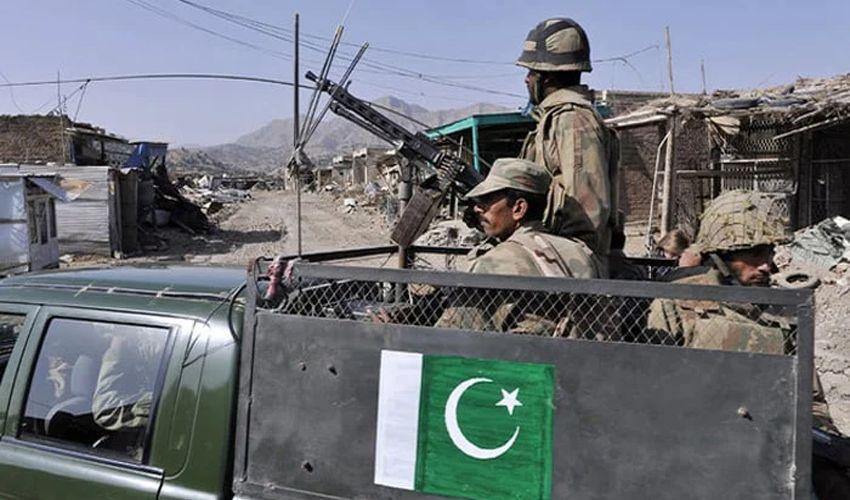PM Shehbaz urges global collaboration to address modern challenges
He says no single nation can tackle the complexities of the modern world alone


Riyadh: Prime Minister Shehbaz Sharif highlighted the need for global partnerships to overcome today’s challenges, with a focus on building a knowledge-based economy driven by artificial intelligence (AI), education, and healthcare advancements.
Speaking at the 8th Future Investment Initiative (FII) in Riyadh on Tuesday, PM Shehbaz underscored that no single nation can tackle the complexities of the modern world alone, calling for collective efforts to create sustainable progress.
"Pakistan stands ready to collaborate with partners who share a vision for a prosperous future. We welcome investors to bring their expertise and innovation to Pakistan as we strive for resilience and growth," he said.
The FII, themed "Infinite Horizons: Investing Today, Shaping Tomorrow," brings together global leaders to explore investment in fields like AI, robotics, energy, healthcare, and sustainability. The conference aims to promote solutions for global issues, economic resilience, and sustainable development.
PM Shehbaz emphasized Pakistan's dedication to building a resilient economy focused on AI, education, and healthcare innovation, aiming to foster partnerships to drive these objectives forward. He noted that AI is reshaping global economies and societies, with Pakistan not just embracing but striving for excellence in the field.
He detailed Pakistan’s mission to encourage young talent in AI, train skilled engineers and data scientists, and integrate AI across various industries to support the nation’s economic growth and stability.
The prime minister envisioned AI as a force for positive change, free from biases, and emphasized that Pakistan, along with partners like Saudi Arabia, views AI as a tool for empowerment. Since taking office in March, he explained that his government has focused on the well-being of its people, with notable progress toward macroeconomic stability, enabling a period of sustained growth.
"This journey isn’t solely ours; it’s a global call to our friends. Together, we can build a future marked by innovation and prosperity," he said, emphasizing the importance of collaboration. He noted Pakistan’s large and vibrant youth population, describing it as "our promise for tomorrow," and expressed confidence in their ability to confront emerging challenges.
Inspired by Saudi Arabia’s Vision 2030, spearheaded by Crown Prince Mohammed Bin Salman, the prime minister said Pakistan shares a similar mission of investing in its youth to shape the future. He underscored the commitment to empower young people through quality education, digital inclusivity, and essential skills that enable them to thrive in a dynamic world.
Beyond AI, he spoke about Pakistan’s commitment to agricultural innovation, climate resilience, and the fight against misinformation, aiming to leverage AI not just for competition, but for empowerment and improvement.
"Our ambitions in AI are anchored in a strong educational foundation. Through reforms, vocational training, and digital literacy, we aspire to develop a skilled, tech-savvy generation," he added.
He highlighted initiatives like the Daanish Schools and the Education Endowment Fund, which have made quality education accessible to previously underserved communities.
"These graduates are the doctors, engineers, and innovators of tomorrow, lifting their communities and driving progress, proving that education is a true equalizer," he said.
On healthcare, he described it as a cornerstone of human advancement, noting that Pakistan’s healthcare sector includes over 275,000 doctors, with many young professionals pioneering new health-tech solutions. He envisioned cross-border collaborations in areas like genome sequencing and personalized medicine, which could redefine healthcare systems.
Institutions like King Edward Medical College, NUST, and Aga Khan University hold potential for breakthroughs in diagnostics, treatment, and disease prevention, he added. The Pakistan Kidney and Liver Institute & Research Centre (PKLI) also plays a crucial role in providing advanced healthcare services, helping to build a healthier society.
"As we explore these infinite horizons, one truth is evident: the future of human advancement lies in collaboration," he remarked. He expressed optimism about Pakistan and Saudi Arabia’s growing partnership, which he hopes will serve as a beacon of inspiration.
PM Shehbaz also emphasised that global progress requires peace and stability, stressing the importance of stopping the bloodshed in Gaza for meaningful advancement.
He expressed heartfelt appreciation for King Salman bin Abdulaziz Al Saud and Crown Prince Mohammed bin Salman for their visionary leadership in bringing together world leaders and experts to discuss future-shaping issues.
He was particularly inspired by Riyadh’s transformation from a desert oasis to a global metropolis, describing it as a symbol of "limitless possibilities" and a vision for a better tomorrow.
"We are inspired to dream big, make choices today, and set a course for a future that resonates beyond borders," he concluded, inviting global leaders to share in this vision.
Pakistan's inning going on against South Africa in final ODI
- 11 hours ago

Martyrs’ sacrifices to never be forgotten: COAS Asim Munir
- 4 hours ago
Renowned TikToker Khaby Lame performs Umrah
- 9 hours ago
PM Shehbaz constitutes negotiation committee for talks with PTI
- 11 hours ago

Turkiye’s FM meets Syria’s new leader in Damascus
- 4 hours ago

Six terrorists killed, 16 security personnel martyred in South Waziristan face-off
- 11 hours ago






